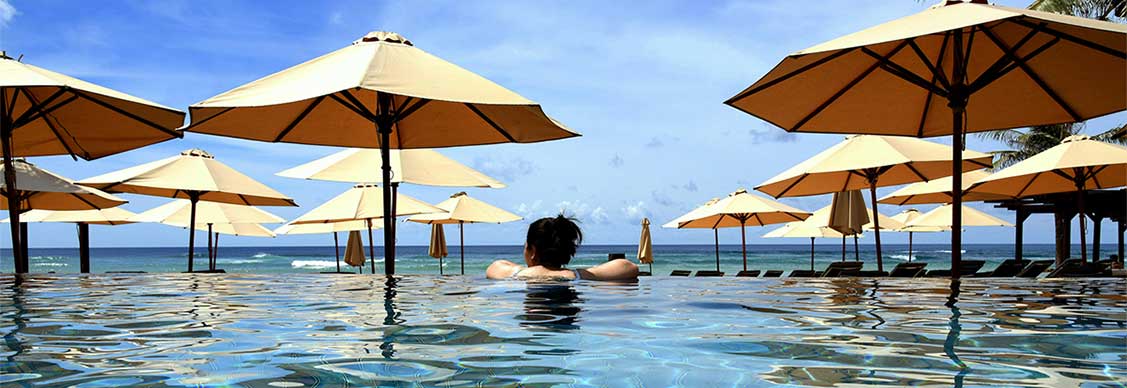Easing travel restrictions spur hotels recovery
The domestic tourism rebound and easing of travel curbs are a boon for Indonesia hotels
Indonesia’s recent policy moves are aimed at spurring recovery for the country’s hotels sector, which like many of its regional neighbours has struggled during the pandemic.
The country lifted quarantine restrictions for international travellers and scrapped testing requirements for domestic travellers in March. The decisions are expected to attract tourists ahead of the Eid al-Fitr holidays and provide a much-needed fillip for the sector.
But the relaxation of travel curbs is not the only measure the hotels sector is counting on.
Domestic tourism has played and will continue to play an equally important role to jumpstart the sector’s recovery, according to Julien Naouri, Vice President, JLL Hotels & Hospitality Group, Asia Pacific.
“Unlike its closest competitor Thailand, which reopened to international tourists last November, Indonesia relies heavily on domestic tourism especially in Jakarta, which often plays host to business meetings and conferences or large domestic events such as weddings,” Naouri says.
Even though the pandemic forced a string of hotel closures, the sector showed its first signs of recovery last year, buoyed by a rebound in domestic tourism.
Jakarta recorded the highest revenue growth in the region, with revenue per available room (RevPAR) rising 51.3% year-on-year in the fourth quarter, according to JLL’s Asia Pacific Hotel Digest. In the luxury hotels segment, occupancy levels hit a pandemic high of 68% in the same period, surpassing pre-Covid figures in December 2019.
“We’re seeing many hotels currently prioritising occupancy over rates, with some lowering room rates aggressively to attract guests,” says Naouri.
Support for recovery
Still, this upward trend is a welcome sign for the sector after nearly two years. During this time, the government has doled out support through various means to keep hotels afloat.
Hotel taxes in 10 of the country’s top tourism destinations were waived for six months as part of an IDR 3.3 trillion (US$230 million) tax relief package announced in the early months of the pandemic.
The amount of grants subsequently increased last year. The tourism ministry also launched the “Work from Bali” programme in the same year to send 25% of Indonesian public servants to live and work remotely from hotels in the holiday destination, which only received 51 tourists last year compared to 6.2 million in 2019.
“For the last two years, the only way to get into Indonesia was, roughly speaking, either as an Indonesian citizen or having a work permit in Indonesia,” says Naouri.
However, activity has been picking up since the lifting of restrictions for both domestic and international travellers, suggesting the move is already paying off.
“Major airlines from Australia are resuming commercial flights to Bali for international travellers which, in 2019, represented nearly 16% of the total visitor arrivals on the island,” says Naouri. This has led to a surge in hotel bookings this month and will likely increase over the next two to three months, according to hotel operators and owners Naouri spoke to.
Likewise, the pickup in domestic travel will benefit hotels, particularly in Jakarta. “With interstate travel gradually coming back, more MICE and business events are expected to take place in Jakarta over the next couple of months,” says Naouri.
Path to reopening
Challenges such as the resurgence of Covid-19, which Indonesia has experienced multiple times in the past year, and the remaining restrictions could still derail the progress made.
Without the quarantine requirements, there are still many barriers to entry for international travellers entering the country. Current measures for the country’s tourism destinations include an on-arrival PCR test, mandatory travel insurance, a minimum three-night booking in a certified hotel, and an on-arrival visa among others.
“These hurdles don’t really help in reopening the country,” says Naouri. “The government should seriously consider relaxing it further to stay competitive with other destinations in the region.”
For instance, Thailand’s Exemption from Quarantine (Test and Go) scheme and its sandbox programme for Phuket and Krabi offer more simplified entry requirements for travellers.
As more countries in the region gradually reopen for tourism, the challenges will only intensify but Naouri is sanguine about Indonesia’s prospects to stage a strong comeback.
“Green shoots of recovery are emerging for Indonesia’s hotels sector, with occupancy levels expected to reach 50% to 60% this year,” says Naouri. “This will likely improve further next year before a full recovery in 2024.”
